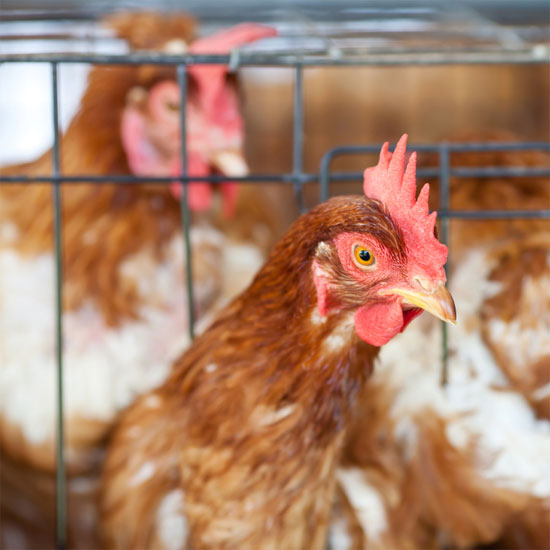Detection of the second bird flu outbreak in the Netherlands
The Dutch Ministry of Health announced on November 20 that it has found the second bird flu outbreak in the country, but it is unclear whether this strain is capable of spreading the same kind found in the first outbreak. .
>>>Discover new bird flu in the Netherlands
The new outbreak appeared on a farm in the town of Ter Aar, southern Netherlands, where 43,000 poultry were raised. The virus that appears here belongs to the H5 strain, but on November 21 night, the test results were confirmed to confirm whether the H5N8 virus was detected on November 16 in Hekendop province in Central Netherlands.

The Netherlands has the second outbreak of bird flu.(Photo: cidrap.umn.edu)
With the emergence of a new outbreak, the Dutch poultry industry fell into paralysis, as officials continued to issue a ban on the transport of poultry across the country and related products. This order is valid for 72 hours, starting from 14:00 on November 20 (local time), ie 20 hours (Vietnam). Dutch officials also destroyed poultry and disinfected farms with new outbreaks, and also examined 4 other farms within a 10km radius from the site of infection.
The European Commission said it had been in regular contact with Dutch officials and was ready to take further action after the virus was identified in Tea Aar.
Shortly after the first outbreak was discovered at the farm in Hekendorp, 25 km from Tea Aar, the Netherlands banned the transport of poultry, eggs and poultry waste nationwide within 72 hours. This ban has just been lifted on November 18th. Dutch officials identify the virus in Hekendorp of the highly contagious H5N8 strain, similar to the recently found virus at a turkey farm in East North Germany and a duck farm in Yorkshire England. . Previously, this virus once existed in Asia.
The Netherlands is a country with a strong poultry breeding and processing industry with 95 million chickens raised on farms and exporting eggs up to 10.6 billion euros (US $ 13.2 billion). in 2011, according to the latest statistics of the country.
- New bird flu detected in the Netherlands
- China: The fourth bird flu outbreak
- Add an outbreak of bird flu in Japan
- Discover the 8th AI outbreak in China
- Japan discovered a new outbreak of bird flu
- Outbreak of H5N8 bird flu in some European countries
- Detection of bird flu in Kuwait
- Detection of bird flu in many countries
- Continue to prevent bird flu
- Japan: Discovered another outbreak of bird flu
- Poland: detected the fifth bird flu outbreak
- Bird flu comes to Thailand
 March 2012: Launching H5N1 vaccine for poultry
March 2012: Launching H5N1 vaccine for poultry Experts comment on the mysterious gradual disappearance of the Delta variant in Japan
Experts comment on the mysterious gradual disappearance of the Delta variant in Japan Danger of the two Delta . branch variants
Danger of the two Delta . branch variants 2020 pandemic flu attack humans?
2020 pandemic flu attack humans?